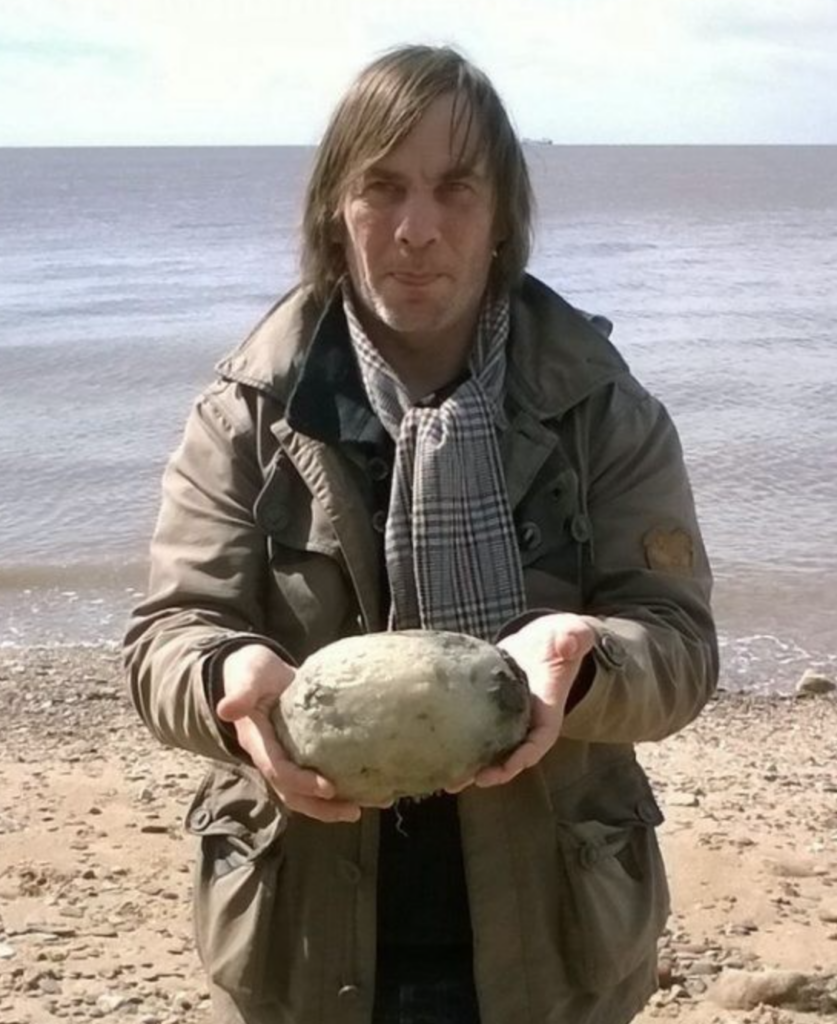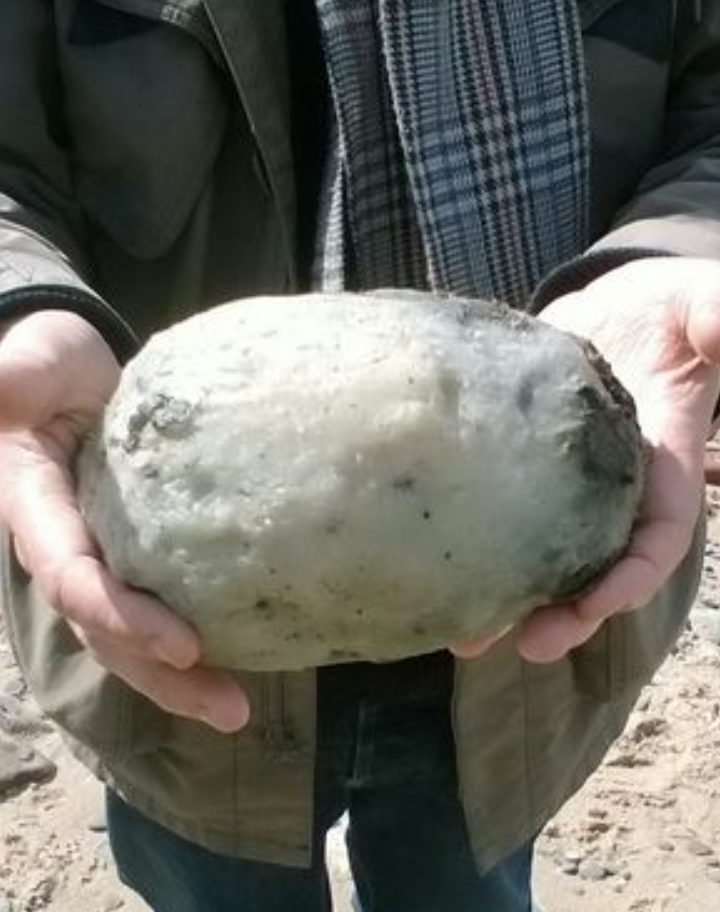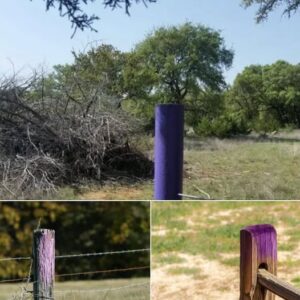When they smelled rotting fish, Overton, Lancashire residents Gary and Angela Williams were walking along Middleton Sands beach close to Morecambe Bay.
They followed the smell until they came upon an odd-looking “rock” that looked like a chunk of ambergris, sometimes known as “whale vomit,” which is used to make perfume.
The couple covered the large lump in a scarf and brought it home after reading about the highly sought-after substance in a newspaper.

Gary, 48, afterwards put the lump on his fishing scales and determined it weighed 1.57kg, which is little over half the size of a lump found several years ago near Morecambe.
The previous piece of “whale vomit” had a startling 2013 value of £120,000.
Gary and Angela, a 49-year-old nurse, are currently in discussions with prospective purchasers regarding the lump that was recently discovered. The stone is somewhat smaller than a rugby ball.
Ambergris, which is made from the hardened intestinal sludge of a sperm whale, is known as “floating gold” because of its scarcity and high worth to perfume producers.
Years are required for the substance to form, and it is believed to shield the animal from the hard, pointy foods it consumes.
Before washing up on shore, it can float in the ocean for many years.

It becomes a smooth, grey lump of compact rock after prolonged exposure to the sun and saline water.
Engineer Gary called the discovery he and his wife made “a bit of a shock.”
It was along a stretch of the beach where few anyone used to walk, he said.
“Though it smells awfully nasty. It has a very distinct smell that is similar to a cross between manure from a farm and squid.
“It has the texture of a really hard rubber ball. It has a waxy, candle-like feel.
“Wax sticks to your fingers when you contact it.”
He added: “If it is valuable, it will go a long way toward helping us purchase a static caravan. A dream come true, that is.”
When Gary and Angela go for walks, they frequently search the beach for interesting objects.
The 1.57 kg of ambergris was discovered on Sunday, and they have since stored it safely while consulting two experts—one in France and one in New Zealand.
Experts placed the value of the 2.7 kg chunk that washed ashore in Morecambe in 2013 as high as £120,000.
At an auction in Macclesfield, Cheshire, last September, a 1.1 kg piece discovered on a beach near Anglesey, Wales, was purchased for £11,000.





